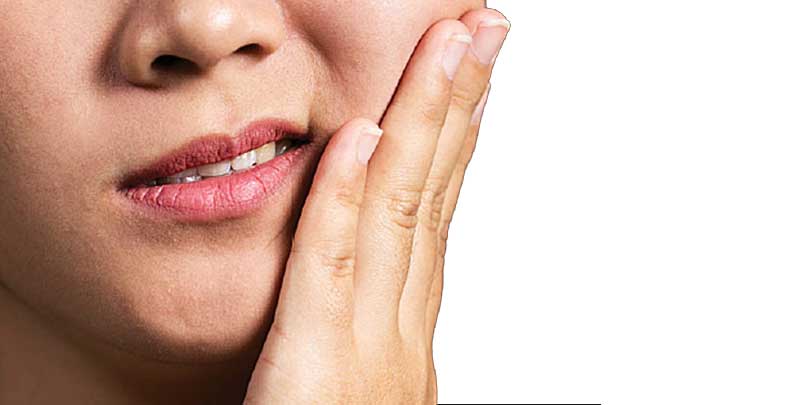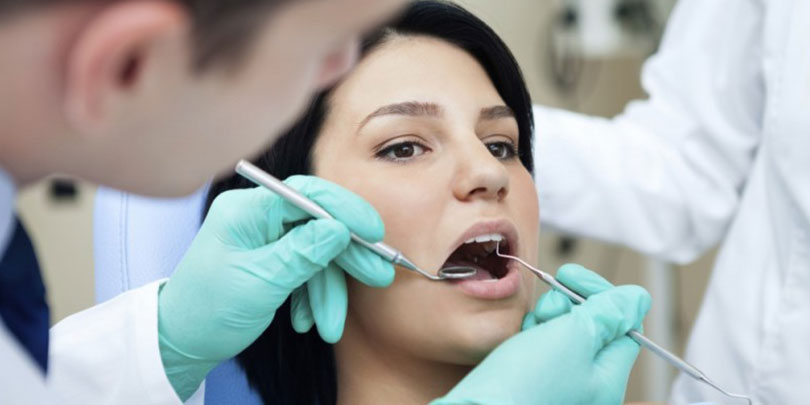Can a Dentist Diagnose TMJ?
TMJ is no picnic for the millions of people who suffer from it and if you’re wondering if you are among them, getting a proper diagnosis can go a long way in treating TMJ. Rather than trying to match your symptoms with online articles, looking at can a dentist diagnose TMJ or not will help in misdiagnoses and treatment. Many of the symptoms of TMJ can be similar to other dental issues and it’s best to seek a proper evaluation to speedily remedy the problem.
Can a dentist diagnose TMJ? The answer is yes and should as they can examine what caused it and the best course to remedy the problem. A dentist can go beyond the symptoms of TMJ you feel and note the cause, if it is TMJ or not, and how serious the TMJ is.
So, let’s go over what TMJ is, how can a dentist diagnose TMJ and the various treatments they may recommend.
What is TMJ?
TMJ stands for the temporomandibular joint and is at the base of the skull near the front of the ear, connecting the upper and lower jaw. It is the reason you can open your mouth to chew and talk, through its hinge-like build. This is why TMJ can be so painful, it flares with every movement of the mouth. When someone says TMJ, they could be referencing the joint itself or the disorder, although it is usually the latter. Like many other joints and parts of our body, we don’t think of them till something is wrong.
TMJ can be caused by a fracture, swelling, and a host of other stresses that causes inflammation. More common causes of TMJ are things like grinding of the teeth and clenching your jaw. But, the cause cannot be determined by you alone. So, if wondering can a dentist diagnose TMJ, not only is it best to have a dentist take a look if you think you have it but they are equipped to tell you with certainty.
How Is TMJ Diagnosed?
The first tell-tale signs of TMJ are the usual symptoms, such as:
- Pain that extends to the face and/or neck
- stiffness in the jaw
- limited jaw movement
- locking jaw
- shifting of the jaw, teeth misalignment.
If you’re wondering can a dentist diagnose TMJ with a standardized test, the answer is no. They have to infer from an examination and the symptoms. Many of the TMJ symptoms can be caused by other oral issues, which is why it’s best to get looked at by a dentist. During the exam, to help in diagnosing TMJ, the dentist may x-ray your jaw, perform a CT scan, or an MRI. Those tests can help determine if the TMJ is caused by something wrong with the jaw itself rather than a habit prompting the pain.
So, can a dentist diagnose TMJ? Yes, with a proper examination in order to rule out other possible causes and to find if the TMJ is caused by habits or the jaw.
TMJ Treatments
Although it’s yes to asking can a dentist diagnose TMJ, most treatments are self-care and at home. To help with the pain you would want to eat soft foods, use ice to reduce the swelling, avoid passive chewing like with gum, and do your best to reduce jaw movements. These treatments can greatly reduce TMJ and help to recover from it.
For more severe TMJ or if your symptoms don’t improve with home-remedies, your dentist may prescribe pain medications like Ibuprofen, muscle relaxants, or medications to reduce swelling. There are also mouth guards your dentist can have made for you after taking a mold of your mouth if it’s determined that grinding your teeth is the culprit. In more extreme cases of TMJ, your dentist may recommend surgery to treat the problem. The procedures for these rare instances tend to be corrective dental alignment, surgery to replace the joint, or arthrocentesis which is removing fluid and debris from the joint.
So, can a dentist diagnose TMJ and treat it? Absolutely and these treatments fit the root cause of the problem rather than symptoms. This is why it’s important to get a proper exam from a dentist rather than just trying to ease the pain.
Can a Dentist Diagnose TMJ?
Yes, and they should. While the internet is a great tool for knowledge and communication, it isn’t a doctor and neither are you. Symptoms only help to alert us when something is wrong, but many mimic numerous other conditions. A trained professional will not only diagnose the problem and find the cause but will recommend fitting treatments to get you top notch once again.
Even when going to your dentist to see if you have TMJ, you have the chance to solve any other creeping oral issues. You could find that you’re in need of cleaning and prevention dentistry, explore restorations or snoring therapy options, or go over some cosmetic dentistry opportunities. Your dental health is essential and going to the dentist, for TMJ or anything else, routinely helps your overall well-being.
Don’t get stuck sifting through symptoms, go see your dentist.



